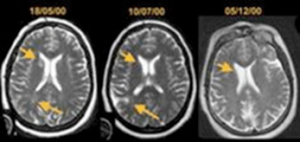Imagine one day waking up with a Russian accent, having neither been to Russia nor heard a Russian accent before. This is the reported case of an American woman whose fall in a stairwell gave her Foreign Accent Syndrome (FAS) that stayed with her for years.
FAS is a speech disorder that causes a person to speak in their native language with speech changes, such as excess stress, consonant substitution, and vowel distortion. This causes the speaker’s accent to sound non-native. As speech is a key part of a person’s identity, and this syndrome can cause a person to feel like an outsider in their own hometown.

Source: Flickr Commons By: studio tdes https://flic.kr/p/raukoq
The first described case of FAS was in 1907 by French neurologist Pierre Marie, where a French man began to speak in an Alsatian accent after a stroke. The syndrome is rare, with only about 60 cases reported in literature. Due to this, FAS is not well studied or understood and can appear as a joke to others.
“Speech is one of the most complicated things we do, and there are a lot of brain centers involved in coordinating a lot of moving parts. If one or more of them are damaged, that can affect the timing, melody and tension of their speech.” – Dr. Karen Croot, cognitive neuropsychologist, University of Sydney
The sound of the “foreign accent” is actually a motor impairment arising from neurological damage, including brain trauma and multiple sclerosis. The areas of the brain affected by FAS are scattered, with no clear damaged area that can explain the syndrome consistently. It is also associated with psychological issues, in cases where the structural damage found through CT or MRI images was not proportional to the speech problems. In this typified FAS, the patient has identifiable psychological issues such as depression.

MRI of brain damage of FAS patient (Source: https://www.utdallas.edu/research/FAS/diagnosis.html)
According to the University of Texas, Dallas, the effectiveness of speech-language treatment for FAS patients is under research. The complete reversal of FAS is rare. In this case presentation, a 55-year-old American male showed a day history of FAS. Following a seizure, there was a sudden reversal of the syndrome. This is the first reported case of a transient FAS reversed by seizure.
With no standardized diagnosis or treatment of Foreign Accent Syndrome available for patients, there is still much to be researched about the cause and range of effects from FAS.
Anna Han
